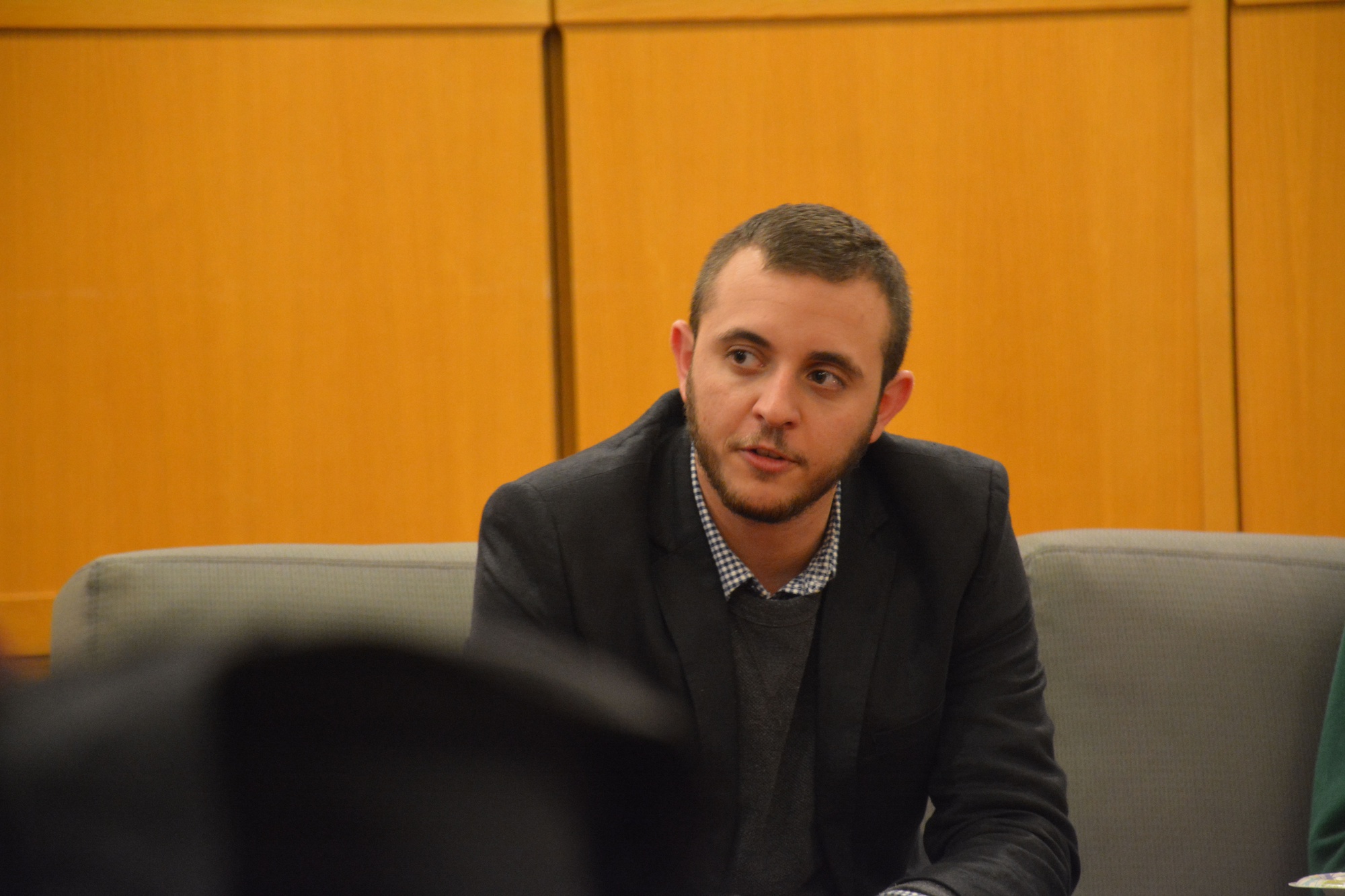
A Conversation With Lt. Shachar Erez: The IDF's First Openly Transgender Soldier
Lt. Shachar Erez originally enlisted in the Israeli Defense Forces as a female candidate, despite the fact that he identifies as male. He was nervous—at the time, Erez did not anticipate that the military would accept and support his transgender identity.
After Shabbat dinner at Hillel on March 31, Lt. Shachar spoke about his experiences as the first openly transgender soldier in the IDF at an event hosted by the Jewish/Queer advocacy group BAGELS.
“I grew up in a Kibbutz, a small, liberal community in the countryside of North Israel,” Erez says. “It was a very liberal community.”
When he was three, Erez remembers asking his parents to shave his head. At five, they helped him get rid of all the dresses and skirts in his closet.
“My two wonderful parents pretty much went with everything I asked,” Erez says.
Nonetheless, Erez says he had limited access to information about the BGLTQ community. Growing up, Erez says he never heard the word “transgender.”
“I remember looking in the mirror one day, when I was ten years old, and thinking, ‘This is not my body, it’s the body of some girl. I’m ruining the body of some girl.’ I felt disconnected and a little guilty,” Erez says. “I didn’t think my inside truth could exist in the outside world.”
Years later, when a friend explained the term “transgender” to him, Erez’s first response was: “You can do that?”
Looking back and laughing at his initial skepticism, Erez points to that moment as the first time he realized he was not alone.
“Finding out that there was a definition for [how I felt] was the missing piece of the puzzle,” Erez says.
Erez decided he wanted to sit down with friends and family members to explain he was transgender and to give them the opportunity to fully understand his identity. After these conversations, Erez says he felt free to openly live as a man—that is, until he joined the military.
Erez says he chose to enlist as a female candidate in part because he did not want to decrease his chances of being successful in the IDF. From a young age, Erez knew he would join the military. Israel has a mandatory draft, and Erez says duty to one’s country was always strongly emphasized in his family.
But soon, uncomfortable with his decision to serve as a female, Erez realized he could not “go back to the closet.” The need to be honest with himself and with military authorities prompted Erez to drastic measures: he approached his commander, a 19-year-old Jewish orthodox woman who had never met a transgender person before.
Shaking, Erez told her he was transgender. Her response was, “How can I help?”
Rather than wearing the official, gender-specific combat uniform, Erez’s commander granted him permission to wear only his IDF work uniform, an outfit that is constant regardless of the wearer’s gender. Erez says he was shocked to find genuine acceptance and care among his military comrades.
“They saw me for who I am,” Erez says. “They treated me just like everyone else.”
Now in his fifth year of service, Erez has taken on a new role in addition to his already demanding job as commander: he is working with the IDF’s Gender Affairs Office to help them understand the issues transgender people face in military service. Erez says he feels he must actively promote welcoming policies and attitudes towards transgender people both inside and outside the IDF.
Erez says he is fortunate not to have experienced the discrimination that many BGLTQ individuals endure in the military. He explains he hopes to advocate for fair treatment of every soldier—no matter their background.
“There is always someone who can use my experience,” says Erez. “There is something bigger going on here than just me.”


